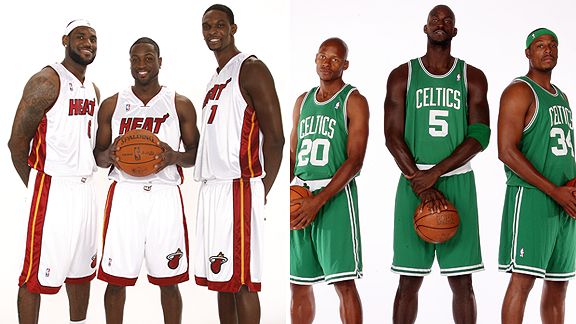In today's NBA, the value and success of a team seems to rely on the number of "star" players a respective team has. In the past five years, teams have picked up the trendy strategy to accumulate as much talent on one team, often by committing large amounts of salary to do so. This has lead to success, with the Boston Celtics and Los Angeles Lakers using this method to win championships. The stigma around this strategy is not an appealing one. Many fans see this as a way of cheating the system, and using leverage (often from big market cities) to lure multiple star players to join their teams. Teams that win with multiple star players is nothing new. Jordan had Pippen. Shaq had Kobe (or vice versa, depending on who you talk to). Bird had McHale and Parish. Magic had Kareem and Worthy. It's the way teams are acquiring these players that has garnered negative public opinion. The Miami Heat are the most glaring offenders of this new NBA paradigm. LeBron James and Chris Bosh left their respective teams to join Dwayne Wade in Miami, spurning their former fan bases in the process. The Heat also didn't help themselves by the way the acted following the arrival of the new "Big 3." Micheal Jordan even spoke out against the way the Heat were assembled, saying "I was trying to beat [my top competitors]." The Lakers and Bulls of old counted on smart decision making and proper development/leadership to build contenders and eventual dynasties.
The Dallas Mavericks ended up beating the Heat in the Finals this past season, not by the accumulation of stars, but by attempting to build cohesive team chemistry. They used an older model of success (see: San Antonio Spurs) where teams grew from within, and counted on drafting and developing their own players. The team the Heat are playing in the Finals this year, the Oklahoma City Thunder, were put together the same way. The Heat's pedigree, however, is nothing to scoff at. They've now made it to two Finals in a row, clearly showing how their strategy can effect a team. Before they joined together, none of the big three players had played with each other for significant amounts of time. In just their first season together, they came within two games of winning it all. They will try again starting on Tuesday night. Whether a team can truly win consistently with this model of team development has yet to be seen.


No comments:
Post a Comment